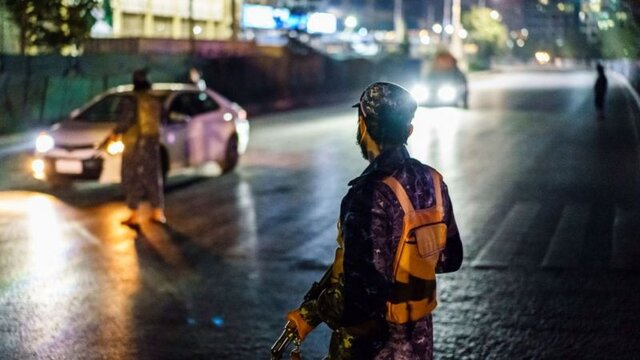Three months after the withdrawal of US troops from Afghanistan and the fall of the Taliban government to the Taliban, according to the Wall Street Journal, it is now clear that Taliban insiders inside ministries, organizations and universities are falling without resistance in the cities and capital. The country played a “significant” role.
According to ISNA, a number of Taliban officials told the newspaper that Taliban undercover agents with shaved beards, western clothing and sunglasses had infiltrated government institutions and international aid organizations in the country for years.
“In Kabul and other Afghan cities, on the eve of the US withdrawal from their infiltrating role, these people surprised their neighbors and colleagues. They pulled out their weapons from hiding places and helped the Taliban quickly,” the report said. “Take control of cities.”
According to the BBC, in the weeks before the fall of Kabul, other major cities in the country fell one after another rapidly and with little resistance from US-backed government forces. Kabul, the capital, fell to the Taliban on August 15, within hours, without a single shot being fired.
According to the report, Salim Saad, a senior Taliban official who has previously carried out suicide bombings and targeted killings in the capital, told the newspaper that “our infiltrators played a role in taking control of strategic points in the capital.”
The people under Salim’s management, the Badri Unit, are affiliated with the Haqqani Network, a network recognized by the United States as a terrorist organization because of its links to al-Qaeda.
“We even had our own people in that office,” the Taliban official, speaking from the office of the Kabul airport security commander equipped with CCTV monitors, told the Wall Street Journal.
In previous years, US-led coalition forces and the former Afghan government’s armed forces were thought to be fighting people dressed in local clothes and with long beards around the cities, but now it has become clear that the Taliban’s urban network is falling. The former government played a key role.
According to the senior Taliban official, it was the Taliban infiltrators who captured the capital after Ashraf Ghani escaped from Kabul and the Taliban “controversially” stopped outside the gates of Kabul.
According to Taliban officials, their infiltrators had taken control of some sensitive security institutions before the fall of Kabul and disarmed the former government security forces.
Taliban officials told the newspaper that they had not allowed the contents of government offices’ computers to be destroyed and that they had also prevented some other institutions, such as the Afghanistan Archaeological Institute, from being looted.
Mohammad Rahim Omari, a middle-ranking commander of the Taliban’s Badri force, said their network of influence in the capital consisted of three sections: fighters, fundraisers and propaganda officials.
A number of colleagues of some Taliban insurgents who have now sought refuge abroad told the Wall Street Journal that they were “shocked” to see them alongside the Taliban.









